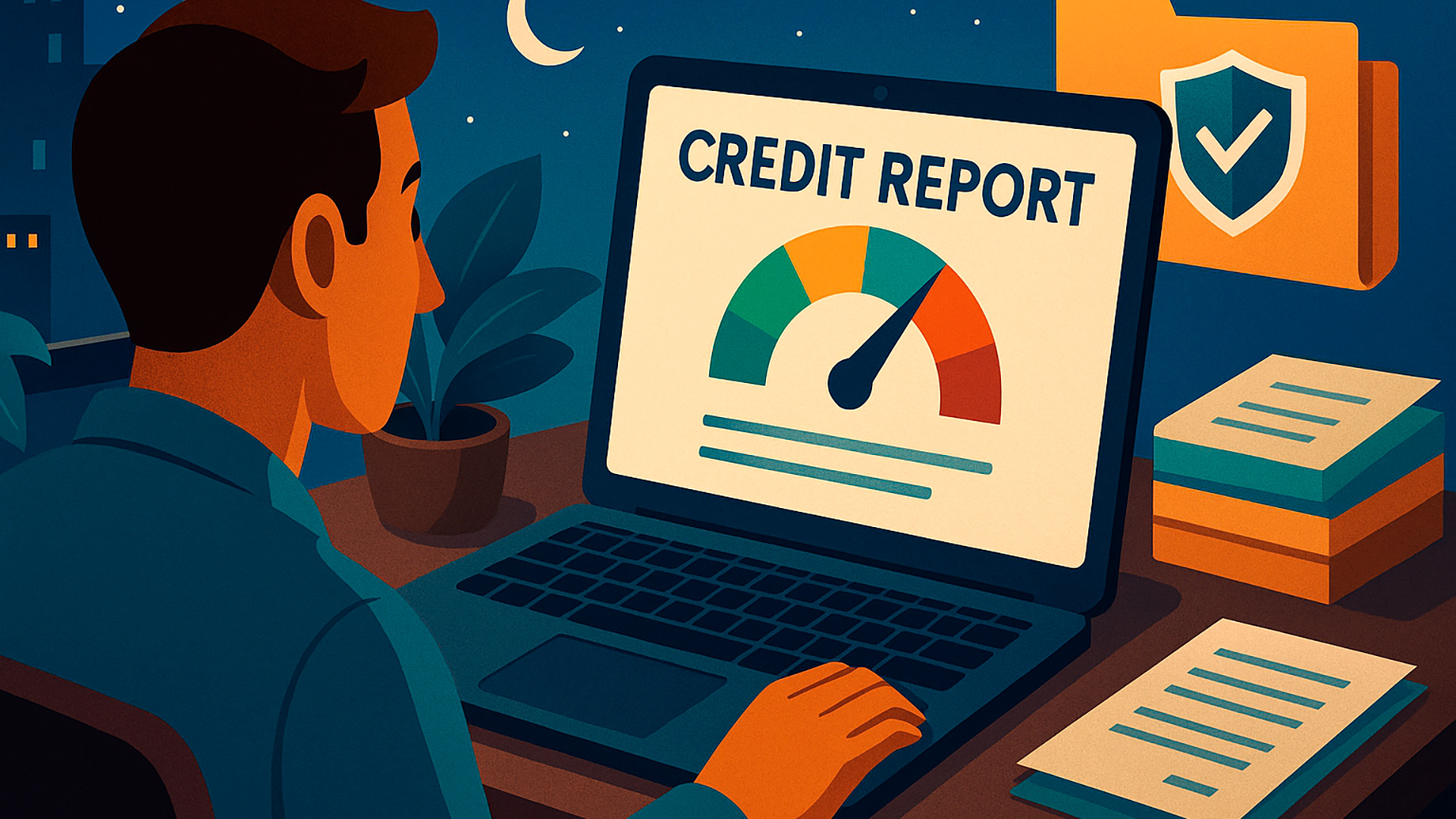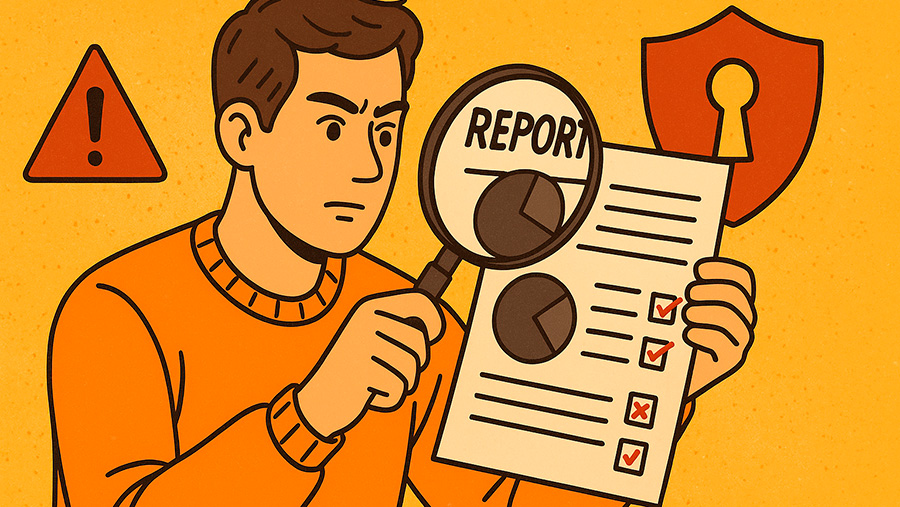Spotting the Hidden Threats in Your Credit: Why Regular Checkups Matter More Than You Think

Most people don’t think twice about checking their car oil, health insurance, or bank balance. Yet, when it comes to their credit reports — arguably the backbone of their financial identity — they often look the other way until something goes wrong. A single error, forgotten account, or fraudulent activity can derail years of hard work. That’s why making time to review your TransUnion report is more than just a financial best practice; it’s an essential step toward protecting your money, reputation, and peace of mind.
Understanding Why Credit Reports Matter So Much
Your credit report is like a financial résumé — it tells lenders, employers, and landlords how trustworthy you are with money. TransUnion, one of the three major credit bureaus in the U.S., compiles your payment history, open accounts, credit limits, and any negative marks like collections or bankruptcies. Every time you apply for a loan, rent an apartment, or even set up utilities, this data plays a role in the decision.
That means a small mistake — say, an account reported late when it wasn’t — could cost you more than an inconvenience. It could mean a higher interest rate, a rejected loan application, or even a denied job offer. By taking time to review your TransUnion report regularly, you take control of that narrative before someone else defines it for you.
What You’ll Find in a TransUnion Report
Many people are surprised at how detailed their credit report really is. It’s not just a list of debts; it’s a map of your financial life. Understanding what’s inside helps you interpret it correctly and spot problems early.
| Section | What It Includes | Why It Matters |
|---|---|---|
| Personal Information | Name, addresses, date of birth, employment history | Ensures your identity isn’t being used by someone else |
| Credit Accounts | Open and closed loans, credit cards, and payment history | Shows lenders how you manage credit and debt |
| Public Records | Bankruptcies, tax liens, or legal judgments | Reveals any major financial setbacks |
| Inquiries | List of who has checked your credit | Too many hard inquiries can temporarily lower your score |
| Collections | Unpaid debts sent to collection agencies | Significantly impacts your credit score if unresolved |
When you review your TransUnion report, look closely for inconsistencies — names you don’t recognize, outdated accounts, or balances that seem incorrect. Even something as simple as a typo in your address can signal possible identity confusion or fraud.
Common Errors That Could Cost You
Credit bureaus handle millions of data updates every day, and while they aim for accuracy, mistakes happen. Studies show that roughly one in five Americans have an error on at least one credit report. Some are small, but others can have lasting financial consequences.
Frequent Issues to Watch Out For
- Incorrect personal details: A wrong birth date or address can link your file to someone else’s data.
- Duplicate accounts: The same credit line reported twice may make it look like you owe more than you do.
- Inaccurate balances: Creditors might report outdated balances, inflating your debt-to-limit ratio.
- Late payments that never happened: Even a single false late payment can drop your credit score by dozens of points.
- Closed accounts listed as open: These can skew your total available credit and impact your utilization rate.
- Fraudulent accounts: Identity theft remains one of the fastest-growing credit issues in the U.S.
If you find any of these, don’t panic — TransUnion has a clear dispute process that lets you submit documentation and correct records. The key is catching them early. Regularly review your TransUnion report so you can fix problems before they start costing you money or opportunities.
How Often Should You Check Your Report?
Ideally, you should look over your credit report three times a year — once from each bureau (TransUnion, Equifax, and Experian). But because data isn’t always synchronized, it’s wise to monitor your TransUnion report at least every four months. Doing so creates a steady rhythm that helps you notice changes quickly, whether they’re errors or signs of fraud.
Set calendar reminders or use free credit monitoring tools that alert you when new accounts or inquiries appear. Prevention is always cheaper than repair, especially when your financial reputation is at stake.
The Cost of Ignoring Your Credit Report
| Scenario | Potential Impact | Long-Term Consequence |
|---|---|---|
| Undetected identity theft | Unauthorized debts under your name | Damaged score and possible legal complications |
| Unnoticed late payment error | Credit score drops 60–100 points | Higher loan interest rates |
| Outdated closed account | Reduced available credit | Higher utilization ratio, lower creditworthiness |
| Multiple hard inquiries | Temporary score decrease | Potential loan rejections |
| Unpaid collections | Ongoing negative impact | Limited access to new credit lines |
These issues don’t just affect your credit score. They influence everything from your ability to rent an apartment to the insurance premiums you pay. Simply taking time to review your TransUnion report can prevent months — even years — of unnecessary financial strain.
What To Do If You Spot a Problem
If something doesn’t look right, the law is on your side. The Fair Credit Reporting Act (FCRA) gives every consumer the right to dispute inaccurate or incomplete information. Here’s how to act quickly and effectively:
- Gather evidence: Collect statements, payment confirmations, or correspondence that prove the error.
- Submit a dispute: Contact TransUnion directly through their dispute center or by mail. Clearly explain the problem and attach documentation.
- Follow up: Credit bureaus are legally required to investigate within 30 days. Keep track of all communications.
- Confirm corrections: Once updated, verify the fix by checking your report again to ensure the issue is resolved.
Taking these steps not only protects your score but also demonstrates financial diligence — a quality lenders value highly when determining credit terms.

Integrating Report Reviews Into Your Financial Routine
Checking your credit doesn’t have to be stressful or time-consuming. In fact, it can fit easily into your broader financial health routine. Many financially disciplined individuals treat credit reviews like regular wellness checks — quick, preventative, and essential.
Simple Habits to Adopt
- Schedule quarterly reviews, focusing on one bureau at a time.
- Compare your TransUnion report against account statements to ensure accuracy.
- Freeze your credit temporarily if you suspect identity theft.
- Track your score monthly through free monitoring apps for early warnings.
These habits help you stay proactive, not reactive. Over time, they create a feedback loop of trust — both with yourself and the financial institutions that rely on your data. The more consistently you review your TransUnion report, the more control you gain over your financial story.
Why Lenders Appreciate Proactive Borrowers
Lenders aren’t just looking for high scores; they’re looking for responsible behavior. When you maintain clean, accurate credit reports, it signals discipline and awareness. This can make a real difference when applying for major loans, mortgages, or refinancing opportunities. Borrowers who monitor their credit tend to resolve issues before they escalate, reducing lender risk — and often earning better rates as a result.
Think of your credit report as a handshake: it introduces you before you even walk in the door. Keeping it polished and up to date ensures that introduction is always a good one.
Turning Awareness Into Empowerment
Financial security doesn’t come from avoiding problems — it comes from catching them early and addressing them confidently. Taking the time to review your TransUnion report isn’t just an act of caution; it’s a commitment to your financial health. It prevents misunderstandings, guards against fraud, and keeps your credit score truly reflective of who you are. In a world where every decision leaves a digital footprint, knowing what’s on your credit report isn’t optional — it’s empowerment. And that empowerment is the foundation of lasting financial freedom.
